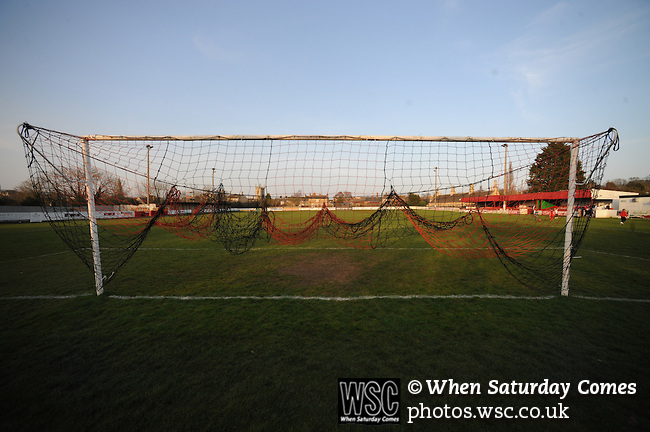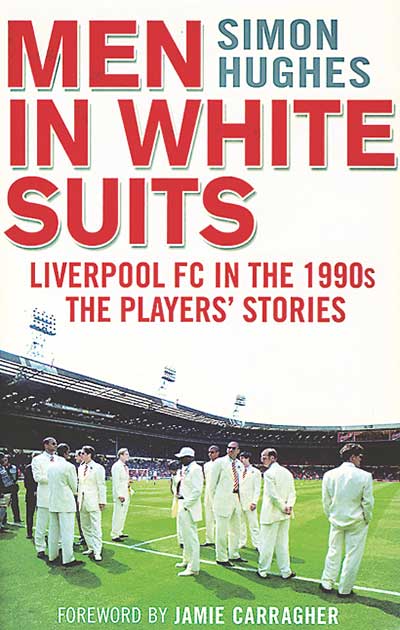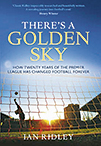
Search: ' Wembley FC'
Stories
July issue available online and in stores
 The new WSC is out now, available in all good newsagents or to order from the WSC shop.
The new WSC is out now, available in all good newsagents or to order from the WSC shop.
– Hibs’ first Cup win since 1902
– Edinburgh City break new ground
– Controversial League shake-up
– Who won the unofficial World Cup?
– Spain’s withdrawal from Euro 60
– WSC writers’ competition winners
 Liverpool FC in the 1990s – the players’ stories
Liverpool FC in the 1990s – the players’ stories
by Simon Hughes
Bantam, £18.99
Reviewed by Rob Hughes
From WSC 340 June 2015
Among the insightful voices in Simon Hughes’s book, John Scales cuts to the issue most succinctly. “Money changed the game and it’s no surprise that a club with socialist principles was the first to fall by the wayside,” he says, referring to the ethos promoted by Bill Shankly, the manager who revolutionised the club in the 1960s. The 1990s was a time of rapid change in English football, where big clubs became global businesses, revenue flooded in from international TV deals and wages ballooned. This increased market competition, however, was just one of the many factors in Liverpool’s decline.
Much like its predecessor, 2013’s Red Machine: Liverpool FC In The 1980s, Hughes’s tome tells the story through interviews with a number of former players and managers. Alongside Scales we have Jan Molby, Jamie Redknapp, Jason McAteer, Graeme Souness and Roy Evans, among others, all of whom look back on their Liverpool tenure with a variable mixture of pride, regret and, occasionally, a little bitterness.
The title of Men In White Suits recalls the team’s ill-advised Wembley walkabout before the 1996 FA Cup final, decked out in flashy Armani gear, and provides the ready metaphor for Liverpool’s failings under Evans. Here was a team capable of the most flamboyant football, but who seemed to lack the required focus and discipline to win trophies: all silk and no steel.
What quickly becomes clear, sifting through the various testimony, is that Liverpool were undone by their own past success. Coaches and management still relied on the same procedures, diets and training methods (even continuing to use the rotting wooden boards at the Melwood training ground for shooting practice) that had sustained the club throughout the 1970s and 1980s. Other clubs, meanwhile, had moved with the times and had adopted a more sophisticated ideology. And when it came to the transfer market (shipping out Peter Beardsley and others before their prime; investing in the likes of Julian Dicks, Paul Stewart and Nigel Clough) it all got pretty embarrassing.
The conclusions of those involved are often fascinating. Both Redknapp and Molby agree that Souness’s management style was unnecessarily aggressive, intent on changing too much too soon. Souness himself, with engaging candour, concedes that he blew his chance and that it was the right job at the wrong time. Evans, too, is big enough to admit some shortcomings, not least the gung-ho attitude to attacking football when grinding out results was often the better option. Although he bristles at the suggestion that he was too much of a nice guy to rule effectively.
The potential to reclaim old glories was certainly there, assert McAteer and Scales, but they attribute Liverpool’s inconsistency to the lack of experienced, “streetwise” leaders on the pitch. And, for fans such as myself, it makes me wince to read how Souness turned down the chance to sign both Peter Schmeichel and Eric Cantona before they were anywhere near Manchester United’s radar. Inconstancy, woeful transfer dealings, lack of leadership and an inability to compete with the top clubs around them. Thank God those days are over.
 There’s A Golden Sky: How 20 years of the Premier League has changed football forever
There’s A Golden Sky: How 20 years of the Premier League has changed football forever
by Ian Ridley
A&C Black, £18.99
Reviewed by Ed Wilson
From WSC 305 July 2012
In the same way that the X Factor is only capable of assessing the importance of the Beatles through the number of “units” they sold, the Premier League is often characterised as measuring success by spreadsheets alone. There’s A Golden Sky is Ian Ridley’s contribution to the debate about the impact of the League – and its money – on the English game as a whole.
Ridley, who writes for the Daily Express, takes the 2010-11 season – the 19th year of the competition, but the 20th anniversary of its conception – as the backdrop to his journey through English football, encompassing everything from the perennial contenders for the Champions League positions to Sunday league players struggling to keep down the previous night’s drinks.
The author has twice served as chairman of Weymouth FC, so perhaps it is not surprising that this book excels when it deviates from the mainstream. There are touching profiles of Wembley FC and Truro City, a visit to Hackney Marshes and an intriguing encounter with Spencer Trethewy who, at 19, announced his ill-fated plan to “save” Aldershot FC on Wogan.
As well as highlighting the knife-edge existence of smaller clubs, these chapters constitute an attempt to answer the question of what drives people to get involved at non-League and grassroots level – from personal grandstanding to a genuine desire to serve the community. At this level, money is not much of a motivator.
Oddly, given the book’s title, the chapters on the Premier League are the least engaging. Occasionally they throw up a new angle or a quirky fact. Sir Alex Ferguson, for example, personally checks each of his players for jewellery before they leave the changing room on matchdays. Don’t think about it too much – the mental pictures aren’t especially pretty. But too often the subjects have been covered so exhaustively that Ridley struggles to find a fresh perspective. If there is anything interesting left to say about Roman Abramovich’s takeover of Chelsea it is unlikely that the club’s chairman, Bruce Buck, is going to be the person to say it.
The book is relatively generous in its treatment of the Premier League. The structure prevents sustained polemic – each chapter could work as a standalone essay – and there are regular reminders that the interests of the game have not always been well served by other custodians, such as the government and the FA. This is not a demolition job of everybody involved with the top division; the account of the destructive impact of gambling addictions on players is sensitively handled and surprisingly affecting.
Ridley is rarely overtly scathing about the Premier League and there are more robust critics of its influence on the English game. Nonetheless, There’s A Golden Sky is a witty and engaging survey of the way the footballing landscape has changed in the last two decades. The snapshots Ridley has chosen to include – from the Glazers’ leveraging of Manchester United to local chairmen keeping clubs afloat with their own money – speak for themselves.
 Roger Titford on the proposal to Oxford United and Reading in the early 1908s
Roger Titford on the proposal to Oxford United and Reading in the early 1908s
If megalomaniac tycoon and serial football chairman Robert Maxwell had not made two monstrous errors, there could well have been a Thames Valley United in Division Three in 1983-84 in place of Reading and his Oxford United. And, as David Lacey wrote in the Guardian at the time, “as a method of killing off two Football League clubs at a stroke the scheme surely has few rivals”.